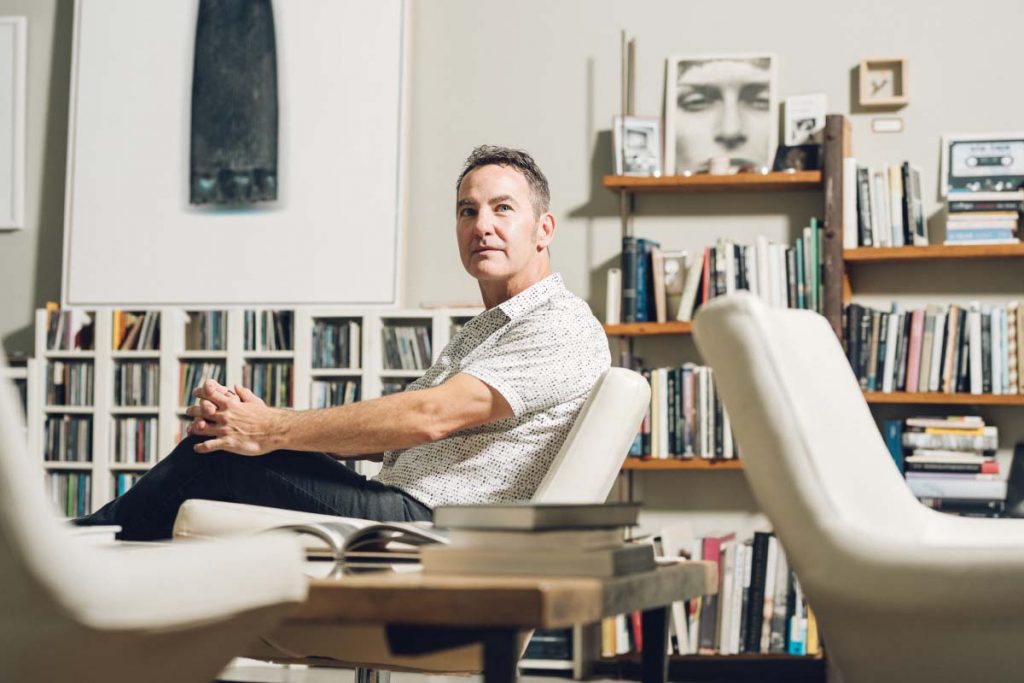
REVOLVE founder Colby Caldwell
Photo by Clark Hodgin
Colby Caldwell, an internationally esteemed photographer, took a risk by coming back to Western North Carolina. He’d grown up in Mills River, but moved to Washington, D.C., in the mid-’80s to attend the Corcoran School of the Arts & Design.

Photo by Clark Hodgin
He blossomed as an artist in the D.C. area — his work has been shown at Hemphill Fine Arts Gallery and spotlighted in the Washington Post — and earned a tenured professorship at St. Mary’s College of Maryland. Over time, though, he grew disillusioned with his role at the school, especially when administrative work stole time from teaching.
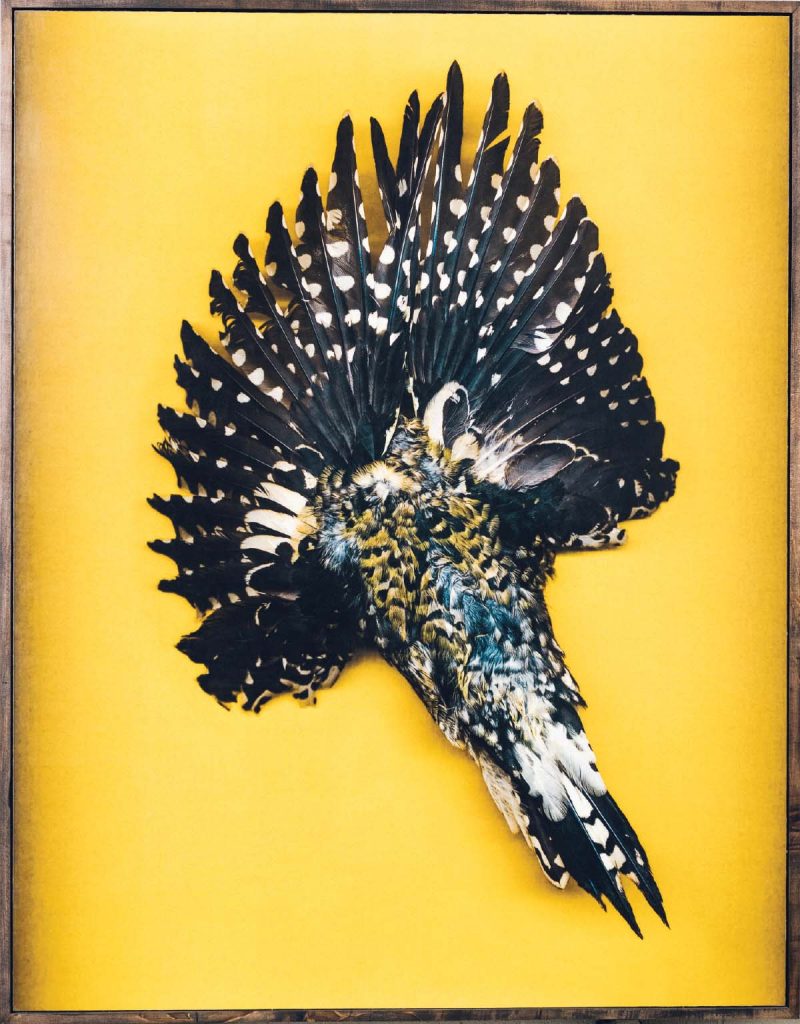
Photo by Clark Hodgin
Six years ago, after noticing Asheville’s artistic evolution during visits, Caldwell made a decision to relinquish the security of his tenureship and come home. “I didn’t want to become a cranky 80-year-old professor,” he says.
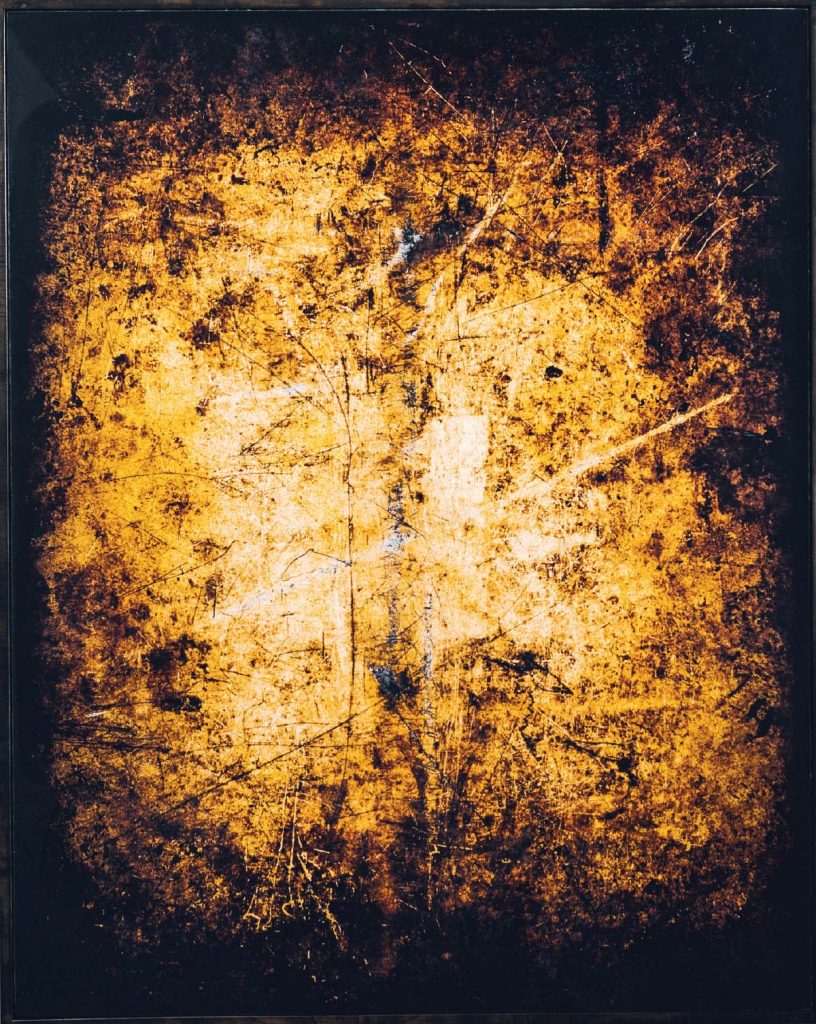
Photo by Clark Hodgin
Out of that leap came REVOLVE. Caldwell describes his progressive venue as a “gallery, studio, and teaching/think-tank space.” Located in Ramp Studios, at the edge of the River Arts District, and born out of a collaboration with the Media Arts Project, REVOLVE has given Caldwell a front-row seat to the city’s vibrant creative community.
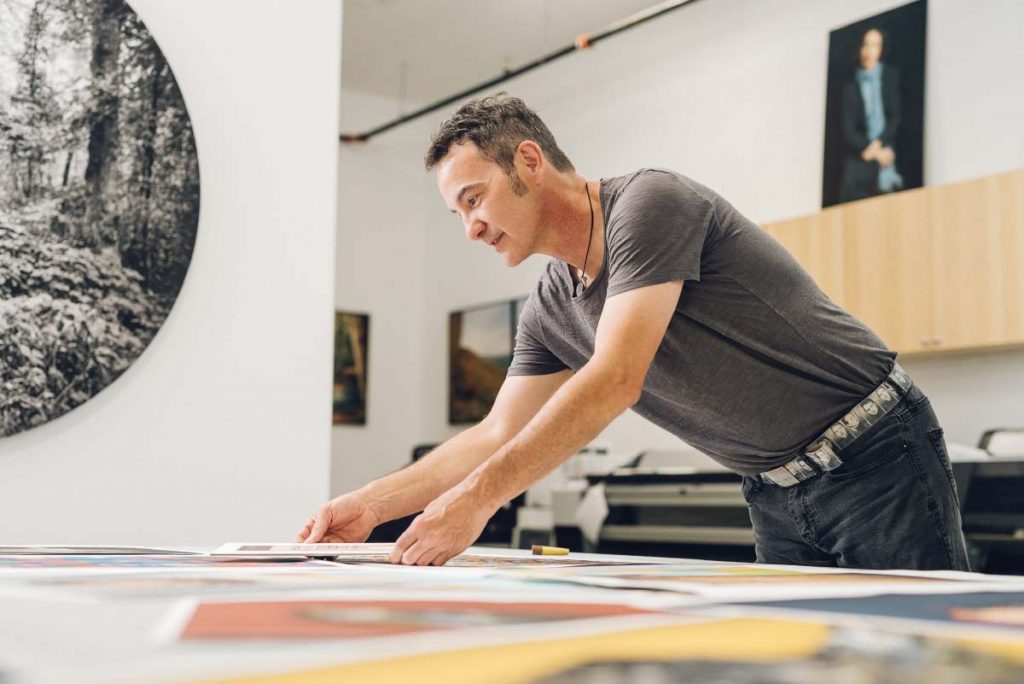
“There’s a strong undercurrent of folks here who aren’t interested in the commodified aspects of what they do,” he says. “I don’t want to romanticize it or anything … but it’s heartening to see.”
When he’s not growing REVOLVE, Caldwell has been busy reconnecting with his craft. His 2016 solo show, how to survive your own death, featured the use of a flatbed scanner as a camera. The exhibit’s origins go back to 1999, when he was using his grandfather’s Super 8 camera and began creating abstracted images from a single glitch frame.
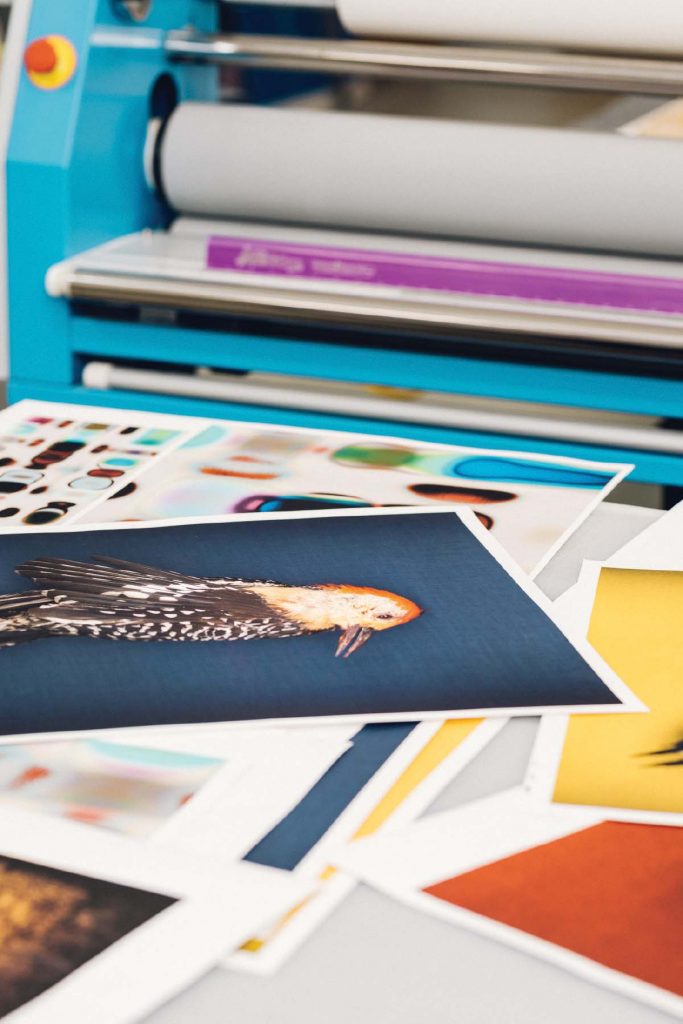
Not long ago, he dusted off his medium-format film camera and began visiting skeet ranges throughout Western North Carolina, extending the “ritual of the hunt” theme that ran through his gun shy installation, a circa-2012 project inspired by his residency on 200-plus acres of Jesuit-owned land on the Chesapeake Bay.
Caldwell’s interest in “the hunt,” as it were, stretches back to his upbringing in Mills River, where, after his parents divorced, he routinely accompanied his grandfather on hunting trips. “I didn’t necessarily enjoy shooting animals, but I enjoyed the stories [my grandfather] told along the way, and all the unique rituals surrounding the process,” he explains. (In a return of sorts to his rustic roots, Caldwell recently relocated his home and studio to a converted barn just outside the rural hamlet of Little Switzerland.)
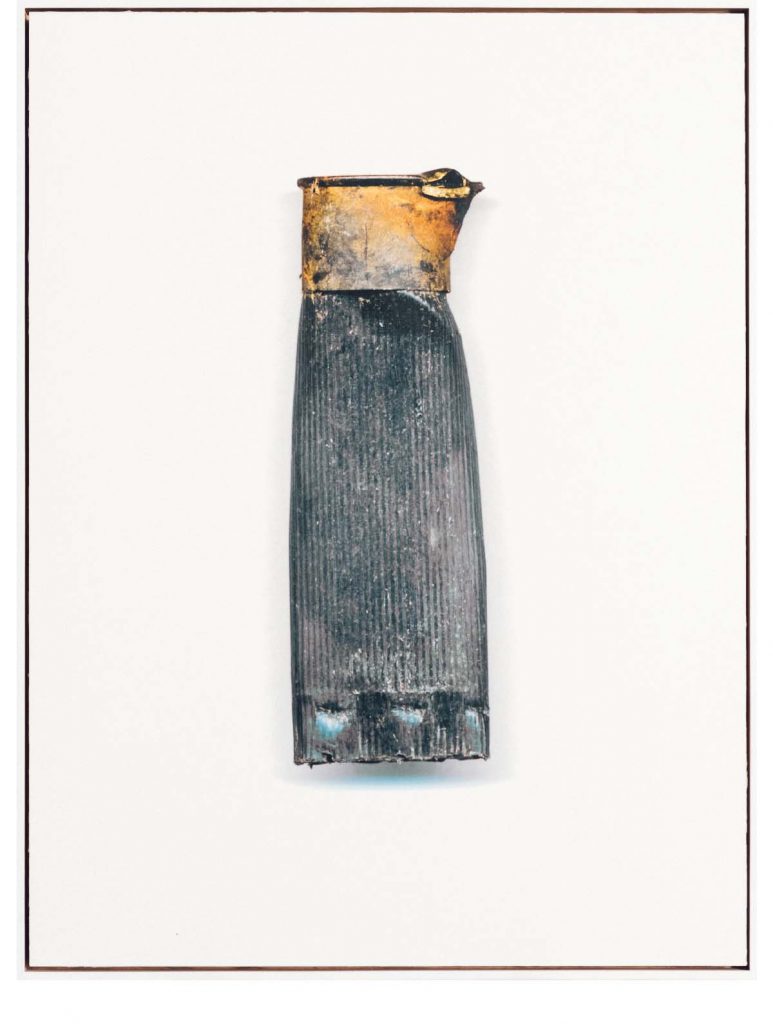
He’s pleased with his personal reinvention in Western North Carolina, happy to have withdrawn from the bubble of academia — though there are no hard feelings — and immersed himself in one of the healthiest collaborative environments he’s experienced during his celebrated career.
“There are no regrets,” he says.
Colby Caldwell, REVOLVE at The Ramp Studios, 821 Riverside Drive #179, Asheville, 240-298-9575, revolveavl.org. Caldwell’s work is shown locally at Tracey Morgan Gallery (188 Coxe Ave., Asheville, traceymorgangallery.com) and on occasion at Haen Gallery (Asheville and Brevard, thehaengallery.com). He will be part of Asheville Art Museum’s opening exhibit, Appalachia Now! and direct an evening of related multimedia programming (ashevilleart.org).